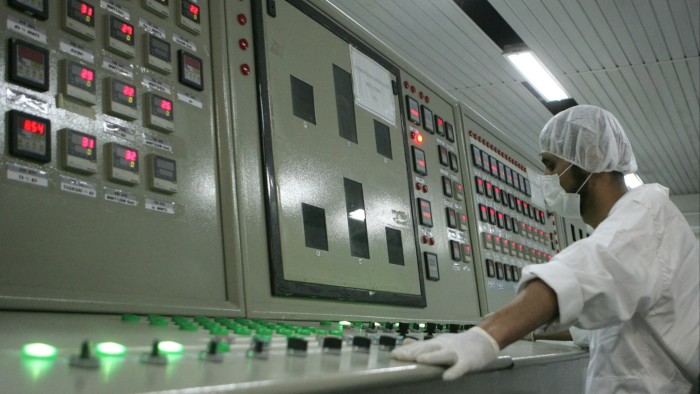Unlock the Editor’s Digest for free
Roula Khalaf, Editor of the FT, selects her favourite stories in this weekly newsletter.
The author is a senior fellow in the Nuclear Policy Program at the Carnegie Endowment for International Peace and the author of ‘The New Nuclear Age: At the Precipice of Armageddon’.
The United States’ decision to entangle itself in Israel’s war against Iran comes at a fateful moment for the global nuclear order. Contrary to US President Donald Trump’s celebration of a “spectacular military success,” the prospects of an indefinitely non-nuclear Iran have diminished significantly — with dire implications for halting the spread of nuclear weapons.
As tactically impressive as the US-Israeli campaign may be, Iran’s nuclear ambitions have not, as US officials suggested, been “obliterated”. The fate of Iran’s stockpile of highly enriched uranium, its most valuable asset should it decide to weaponise, and components of advanced centrifuges remain unaccounted for. Despite Israeli assassinations of key scientists, Iran continues to possess a significant knowledge base that could aid its weaponisation.
The world is experiencing an era of nuclear flux; since 2020, we’ve seen Russia invade non-nuclear Ukraine backed by nuclear threat-making, China embark on a major build-up of its nuclear forces, India and Pakistan engage in the most significant violence below the nuclear threshold in decades, while discomfited US allies — from Warsaw to Seoul — are increasingly considering their own nuclear options. This new era has thrust nuclear weapons back to the centre of global statecraft.
While military action against nuclear facilities has a long history, there is no precise precedent for this month’s events. Israel — which is the only country in the Middle East to have nuclear weapons, but does not declare its programme and is not a signatory to the Non-Proliferation Treaty (NPT) — took it upon itself to bomb several nuclear facilities under international safeguards on the territory of an NPT party and successfully recruited the US to strike the targets it couldn’t take out itself.
Israel has long alleged that Iran was undertaking weaponisation activities, but US intelligence has not supported this conclusion. Iran’s well-documented pre-2003 activities on weaponisation precipitated this crisis, but keeping Iran within the NPT — and compliant with the verification and monitoring requirements that follow — is critical.
Iran’s leaders now have several options, but a chief consideration will be the matter of whether to remain in the NPT or to become only the second state, after North Korea, to have signed, ratified, and exited that agreement — possibly to then test a nuclear explosive, as North Korea did in 2006.
An Iranian withdrawal is more likely than not at this point — with potential ripple effects across the broader Middle East and a heightened probability of an Iranian bomb. Iran has already passed a law, approved by the country’s powerful Guardian Council, calling for the total cessation of co-operation with the International Atomic Energy Agency. This could presage a withdrawal from the NPT, which mandates such co-operation. With an exit from the NPT, Iran would no longer have an active safeguards agreement with the IAEA, limiting transparency as it seeks to rebuild its nuclear programme.
The actual consequences of such a development would be devastating. For instance, Saudi Crown Prince Mohammed bin Salman has repeatedly promised that his country would seek a nuclear weapon if Iran were to do so, openly or covertly. Others may follow.
Reversing this damage to the non-proliferation order will be difficult, and there is no panacea. There are, however, steps that leaders who value an orderly, if imperfect, system of non-proliferation can take.
The lowest-hanging fruit would be for strong supporters of the NPT — particularly in Europe — to align their rhetoric towards Israel with their far more consequential interests in global non-proliferation. The UK, Germany and France, for instance, have failed to call a spade a spade when it comes to the non-proliferation implications of June 2025’s events and couched their support for Israel’s decision to launch its war in the language of self-defence. This is a mistake.
European states should follow the example of Japan, which plainly criticised Israel and appreciated the harm this brings to the non-proliferation order. This is especially true at a moment when the US seems unable and unwilling to steward the institutions it once championed, including the NPT itself.
While Trump and other senior US officials have vaguely alluded to non-proliferation principles in justifying American entanglement in this war, that is not their chief concern. This moment will require others to stand for a fraying global nuclear order before the remaining pillars collapse entirely.
